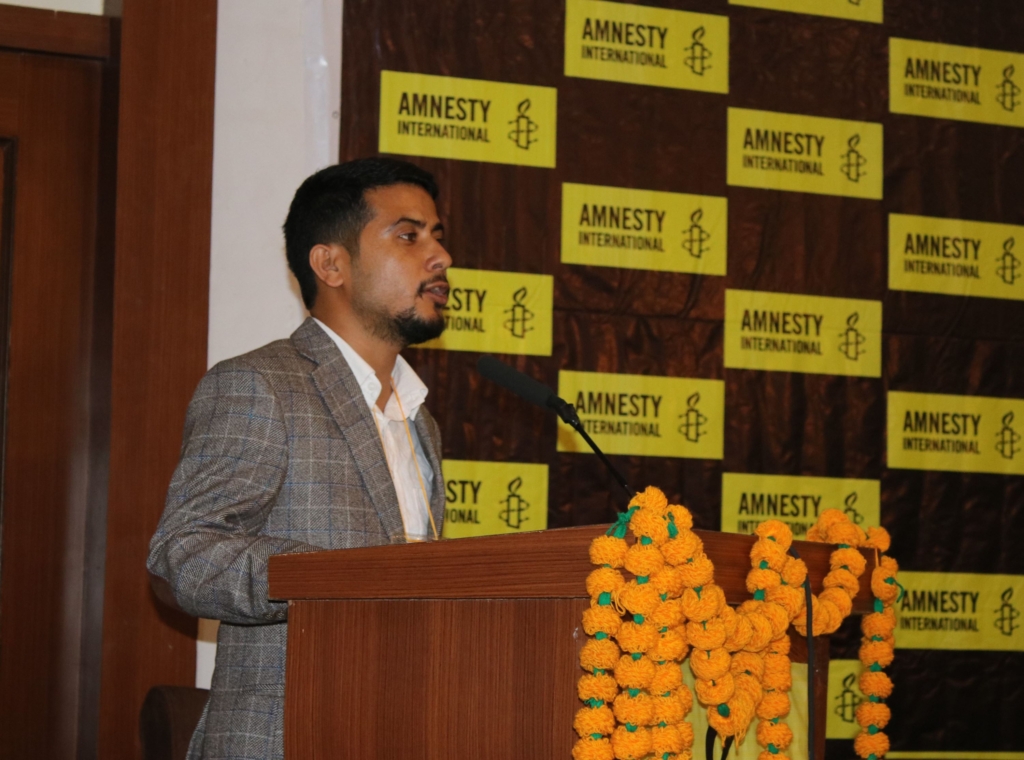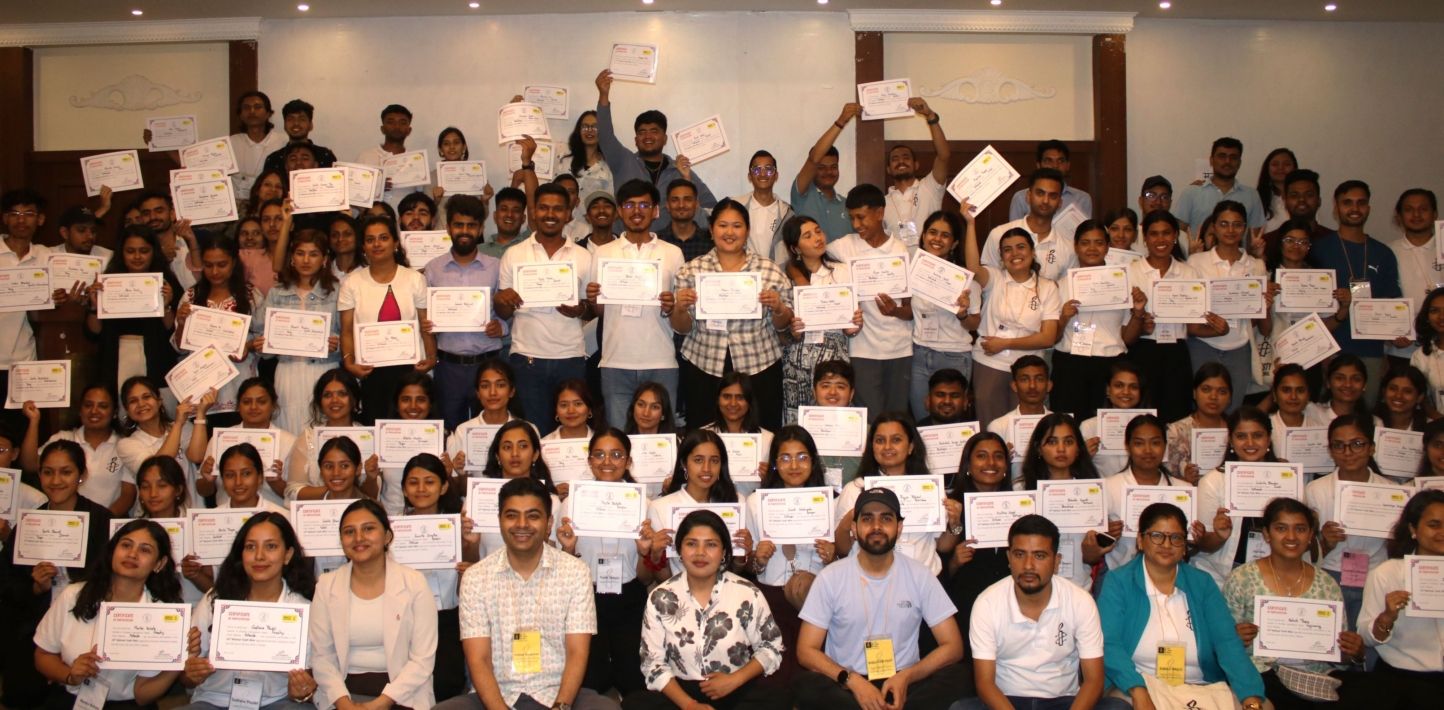Amnesty International (AI) Nepal organised the 16th edition of its annual national Youth Mela in Pokhara, Kaski, from June 6 to 8 2024. Held at the Teeka Resort, at Lakeside, the three-day program saw the participation of more than 120 youths from across Nepal representing various AI Nepal affiliated Youth Networks to build knowledge and advocacy skills on a range of contemporary human rights issues in Nepal.
AI Nepal has been organising the Youth Mela since 2006 and over the past 16 years, it has so far imparted such training to over 1,500 young activists. As it is with every year, the Youth Mela takes on a different theme each time. In line with Amnesty’s most recent publication ‘No One Cares: Descent-Based Discrimination Against Dalits in Nepal’, this year’s theme for the Youth Mela was ‘Enabling youth power to end all forms of discrimination’, centred around the issue of systemic caste-based discrimination.
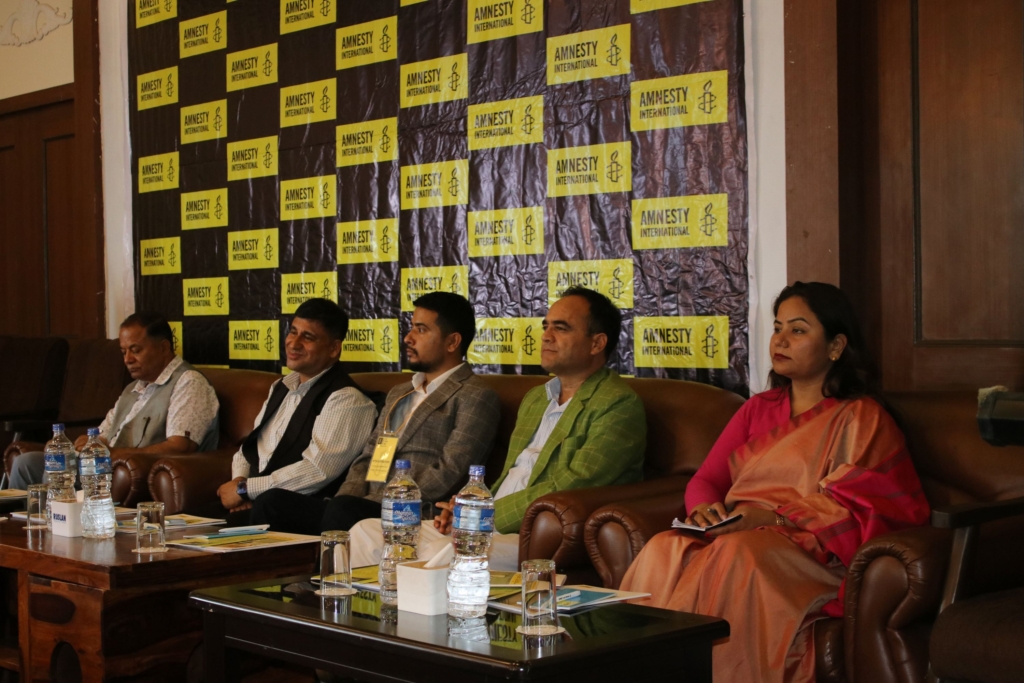
The program’s inaugural session was facilitated by AI Nepal Director Nirajan Thapaliya, with welcome remarks delivered by Baburam Pant, Deputy Director for Campaigns, South Asia Regional Office; Bimala Bhandari, President of the Federation of Nepali Journalists, Kaski Branch; Ram Prasad Subedi, President of NGO Federation; Rajib Pahari, Central Committee Member of CPN-UML; and Nain Singh Mahar, Central Committee Member of Nepali Congress.
Welcoming all participants to the program, Thapaliya said, “This year, the Youth Mela is centred on the theme of enabling youth power to end all forms of discrimination and we hope that, after these three days, once you go back to your communities, you address and tackle any form of discrimination you see.”
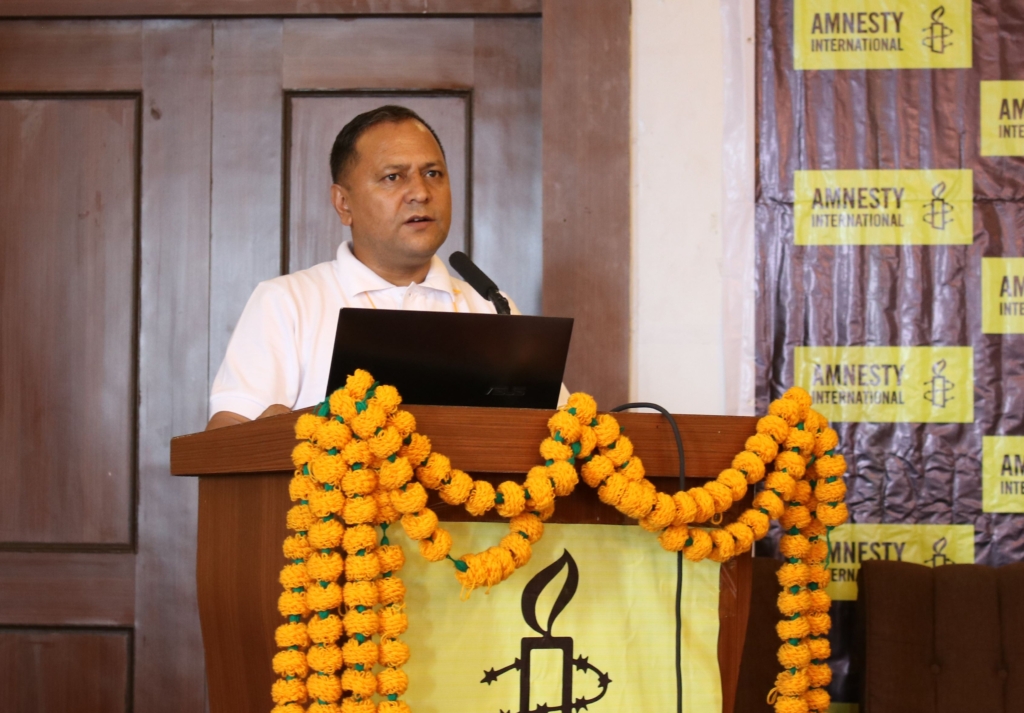
In addition to sensitising participants on the role of youths in tackling issues of descent-based discrimination, this edition of the Youth Mela was designed to also address other human rights issues in Nepal, such as transitional justice, climate justice, rights of the LGBTQIA+ community, among others.
The inaugural session of the Mela saw a lively panel discussion. Rights activists and experts who were part of the panel discussion program were Subash Sapkota, a SOGIESC rights activist; Anjali Sah, a woman and Madhesi rights activist; Kiran BK, writer and activist; Jalasa Sapkota, disability rights activist and writer; and Kunjani Pariyar, a human rights lawyer. They put forth their perspectives on descent-based discrimination and how young people can challenge this persistent culture in an engaging panel discussion. The panel was moderated by AI Nepal’s Human Rights Education Coordinator Kundan Raj Sharma.
“As a Dalit, I have experienced a lot of discrimination ever since I was a child by so-called upper caste people. Consciously or subconsciously, caste-based discrimination is ingrained in our society and the only way to address it is to educate ourselves and others around us, organise together and fight for change to happen,” said Kiran BK.
“When we talk about discrimination, I think the crucial question we need to ask is who is creating this discrimination: is it our society or our individual mentality? As a Madhesi woman, I have experienced that discrimination begins in our homes,” said Arati Sah.
So, how do we challenge this culture of discrimination? Jalasa Sapkota, who has always been discriminated against on the basis of her visual impairment, shared her story and how she tackles the discrimination she faces: “In Nepal, particularly in cities outside Kathmandu, schools are not designed for students with any kind of impairment. I had to move to a hostel in Kathmandu from Butwal when I was seven years old because there were no schools for me to study in at Butwal,” she said.
“To address this discrimination in access to education, I have been persistently writing about the need for comprehensive disability education, including digital literacy. We have to learn to be sensitive to the people around us – all kinds of people, and I try to do that through my writing” she added.
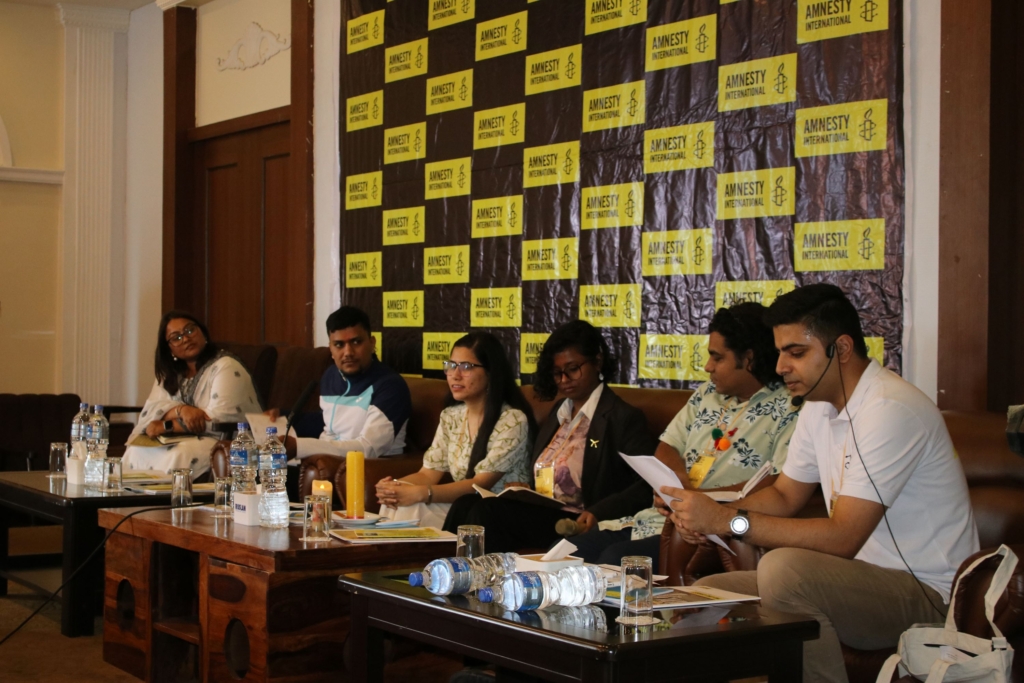
Kunjani Pariyar provided her remarks wrapping up the discussion. “Many issues were discussed today, in terms of discrimination on the basis of caste, of gender identity, of accessibility in education, of inclusivity. From what I understand, caste-based discrimination is not a fight of Dalits vs non-Dalits, but a fight against the dominant Khas Arya group. The fight for women rights is not against ‘men’ but against patriarchy and the fight for Madhesi rights is a fight against the ‘nationalist’ view that only Khas Arya people are ‘Nepali’. The fight for disability rights and LGBTQI rights is a fight against the mentality that is not inclusive.”
“The Constitution of Nepal envisions a just and equal society but it does not recognize discrimination. The first step towards fighting any form of discrimination is to first acknowledge that discrimination exists and that it has deep political, cultural and economic roots. Who will end this discrimination? It is now up to us, it is our responsibility,” she added.
Currently, there are 55 Youth Networks in Nepal. Among a total active membership of 5,720, 47 percent are youth members. The largest youth membership is with Rampur Youth Network.
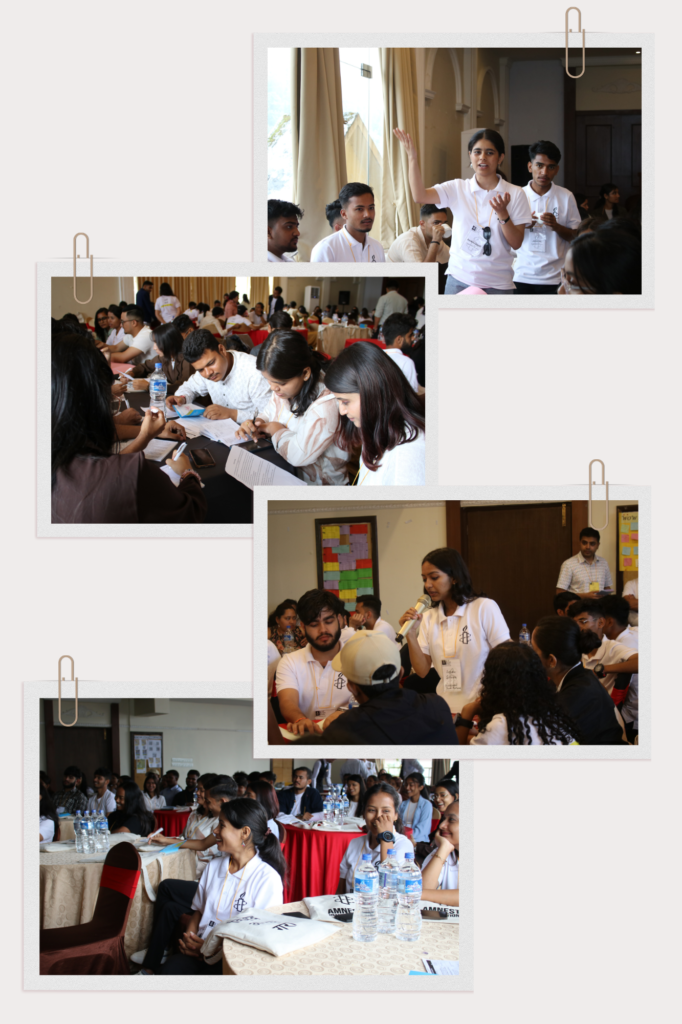
The second day was a day of teaching and participatory learning. It began with an educational session on ‘Introduction to Human Rights: Understanding the Essentials’ carried out by AI Nepal Director Nirajan Thapaliya, where he cleared the concept of human rights, its values and principles, how they are violated and abused, and the role of the State, civil society organisations, media and the international community in ensuring human rights are upheld.
Participating members also engaged in several group activities, where they discussed the history of Amnesty International, the major achievements of Amnesty, the history of AI Nepal, the limitations of Amnesty’s actions, and its key campaigns, successes and priorities.
An interactive session was also conducted by Baburam Pant, Deputy Director for Campaigns, South Asia Regional Office, and AI Nepal’s Campaigns Coordinator Ashmita Sapkota on the ‘Bolt and Nuts of Human Rights Campaign’.
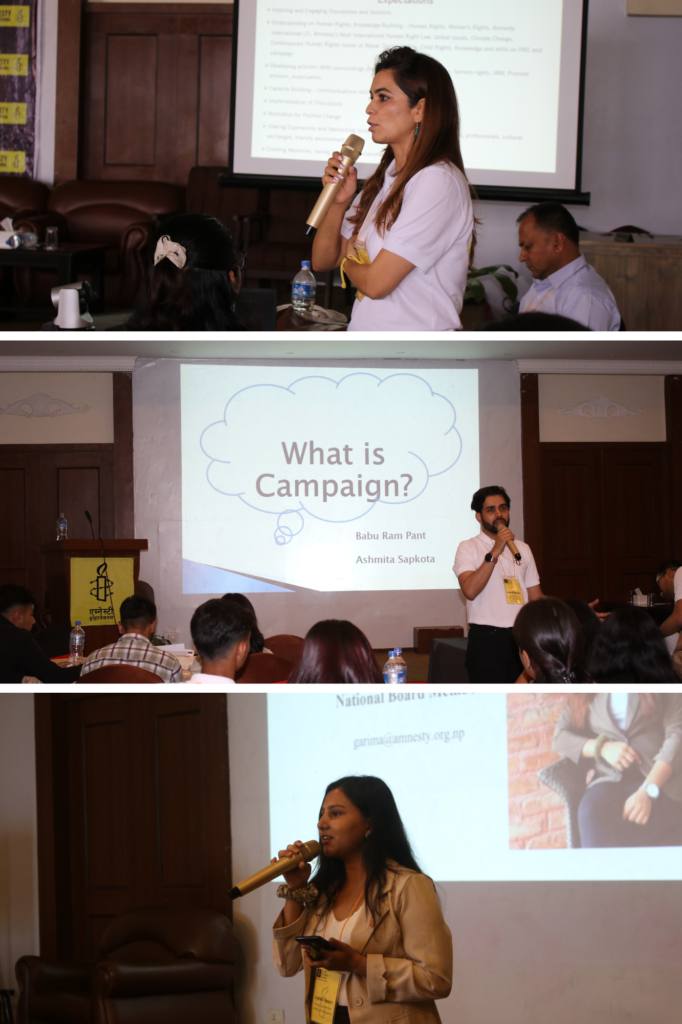
Other interactive educational sessions were conducted by activists, rights-holders’ groups, members of the Dalit community and other stakeholders, such as Surendra Khatri, President of National Network of Disabled Conflict Victims, who spoke on the plight of civilians like him who were disabled during the armed conflict of 1996-2006. His talk was titled ‘Exploring Nepal’s Recent Past: Understanding the Human Rights Implications of Internal Armed Conflict 1996-2006’.
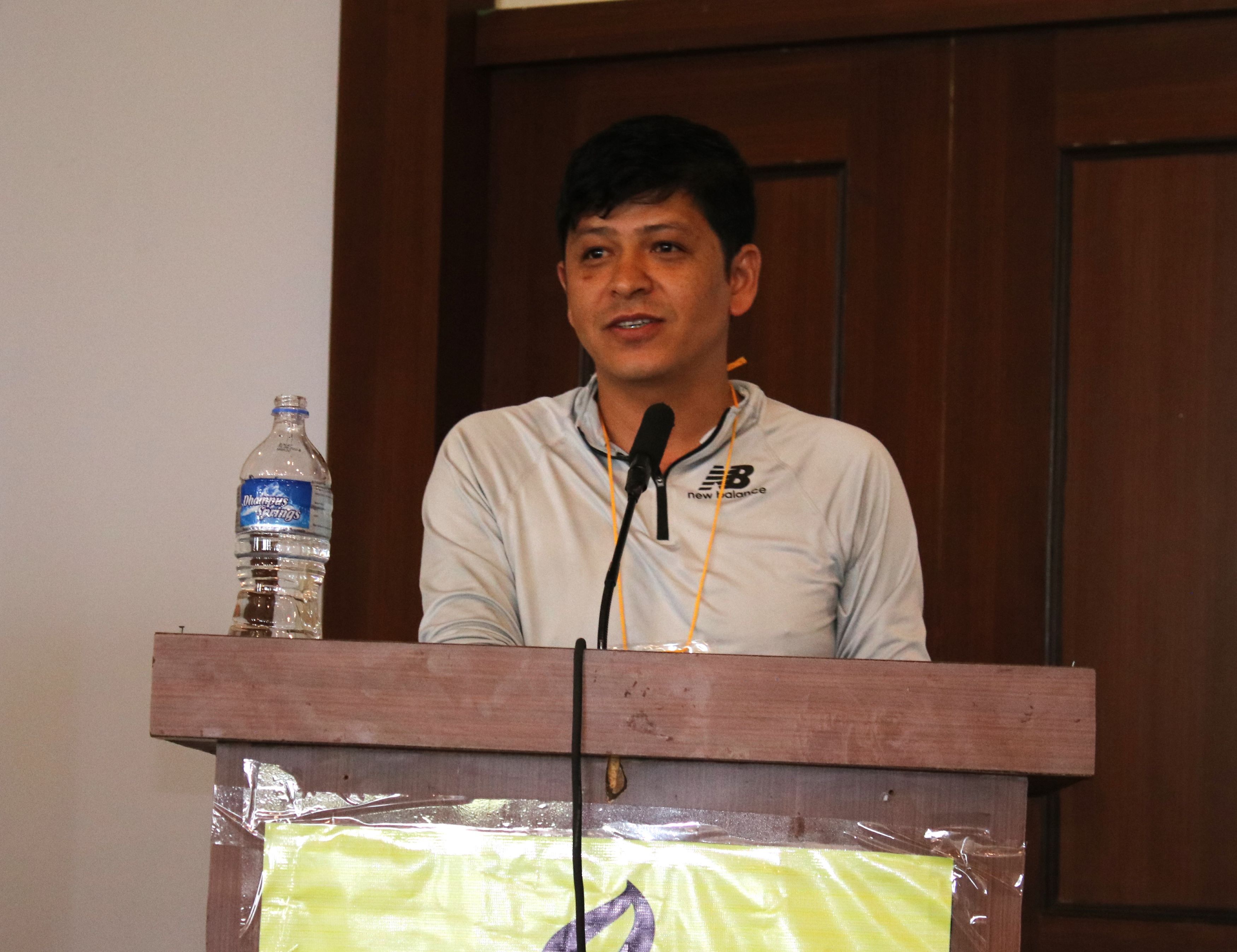
A session on the role of youth in climate action was facilitated by Prajwal Bikram Rana, Membership Engagement Coordinator, Asia Front of World Youth for Climate Justice. In the presentation, he shed light on the concept of climate justice, how climate justice is a human rights issue and what youths in Nepal can do to address this global crisis.
Informative sessions were also conducted by AI Nepal Chairperson Bipin Budhathoki on the topic ‘Leadership in Amnesty’ and by national board member Garima Pandey on ‘Youth, Power, Action: Youths in Amnesty’.
On the final day of the Mela, youth activists also rolled out a rally calling for an immediate ceasefire in Gaza, where more than 36,000 people have died in Israeli unlawful attacks.
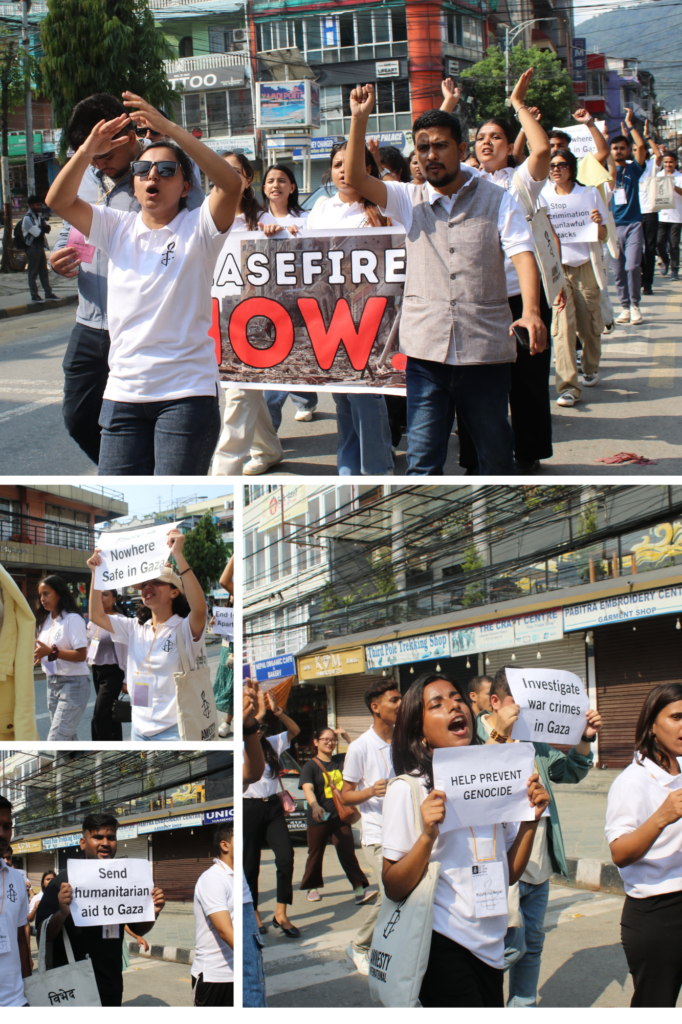
The last session of the day was by Subash Sapkota who delivered a talk on ‘SOGIESC and Myth Busting Narratives Against LGBTIQ+ people’. The three-day program was wrapped by an intense debate competition among youth members, on the topic: Gender Roles: Blessing or Curse.
Wrapping up the three-day program, AI Nepal Chairperson Bipin Budhathoki said, “We hope we all learned a great deal from this three-day program and that you will utilise what you have learned in the days ahead as members of Amnesty. In a world where democracy is under threat everywhere, we must keep fighting for a world where human rights are exercised by all and that the candle of Amnesty is always lit.”
